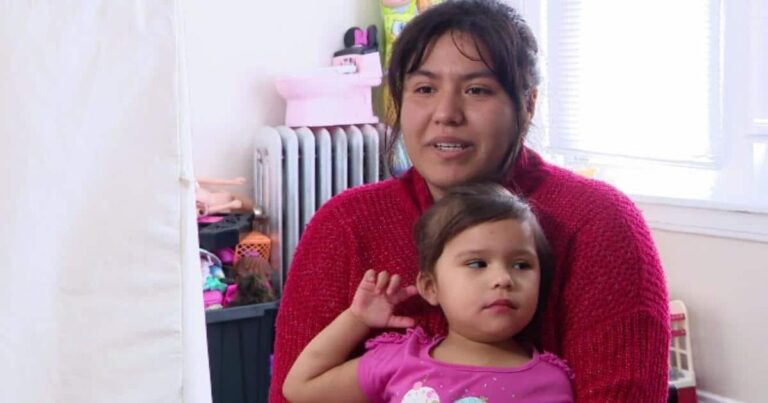For Enidt Martinez, a mother of two from Rogers Park, escaping an abusive relationship was not just about physical safety. She was also battling financial abuse, a form of control that left her feeling trapped. Martinez’s journey to freedom has now led to a legal victory that could pave the way for thousands of other domestic violence survivors to reclaim their independence.
According to the National Network to End Domestic Violence, financial abuse occurs in 98% of domestic violence cases, making it the primary reason survivors remain with their abusers. For Martinez, it was no different. “Pay attention to the red flags because there’s always red flags,” she advised.
Martinez’s relationship began deteriorating when arguments turned physical. “He grabbed me by my hair and pulled me all over our room. He punched me, kicked me,” she recalled. What started as verbal arguments escalated into terrifying physical attacks, witnessed by her young daughter. “She would yell at him to stop or go hide under her blankets,” Martinez said, describing the traumatic environment her children endured.
But physical abuse was only part of the ordeal. Martinez’s partner used financial control to keep her dependent. “He would not let me go to work, but when bills started coming, he’d tell me to get a job,” she said. No matter what she did, Martinez was subjected to verbal attacks and financial manipulation that left her feeling powerless.
The final straw came when Martinez’s boyfriend attacked her while she was holding their nine-month-old daughter, Esperanza. Determined to protect herself and her children, she decided to leave the relationship for good. “It made me make that decision to just leave and get an order of protection,” Martinez said.

She filed for a protection order and requested temporary child support as part of the order. However, when she went to court, the judge refused to address her request for child support, leaving her with no financial assistance. “It did let me down. The judges did let me down,” she said.
Martinez’s case drew the attention of Legal Aid Chicago, which advocates for survivors of domestic violence. According to Benna Crawford, an attorney with the organization, Martinez’s experience is not an isolated incident. “What happened to Enidt is the same experience that survivors of domestic violence have been having for at least the past decade,” Crawford explained.
Under the Illinois Domestic Violence Act, judges handling protection orders are required to consider requests for temporary child support. “It is critical to survivor safety. It is required by the law,” Crawford emphasized. However, too many judges have been failing to uphold this part of the legislation, leaving survivors without the financial support they need to break free.
When asked to explain the oversight in Martinez’s case, the Domestic Violence Division’s top judge issued a statement claiming that temporary child support orders were being granted “in an exceedingly high volume.” However, when reporters pressed for data to support this claim, none was provided. The court admitted that it does not track these figures, exposing a troubling gap in accountability.
The statement also mentioned efforts to develop a framework for handling child support requests more effectively, signaling a possible shift toward improved enforcement of the law. “In partnership with the Domestic Relations Division, the Domestic Violence Division continues its work in developing a framework to allow for the proper initiation, administration, and enforcement of requested child support orders,” the statement read.
Martinez’s perseverance, along with the support from Legal Aid Chicago, led to a victory. She was eventually granted child support, a crucial win not only for her but also for the many survivors who might find themselves in similar situations. Her case has put a spotlight on the issue of financial abuse and the need for better enforcement of existing laws designed to protect survivors.
